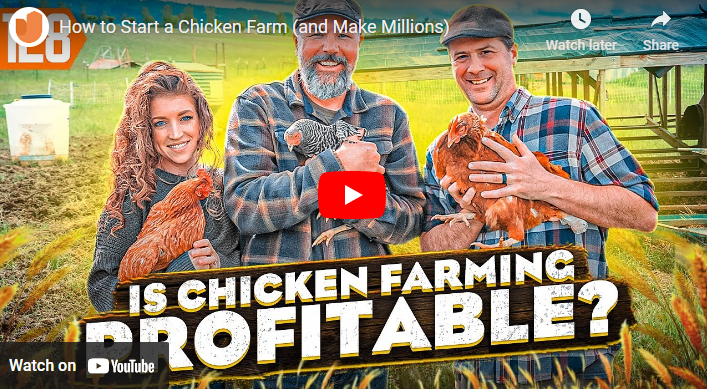Starting a poultry farming business in Australia can be a rewarding venture, both financially and personally. This comprehensive step-by-step guide will walk you through the process of establishing and managing your poultry farm successfully.
From understanding the basics of poultry farming to marketing and selling your products, we’ll cover everything you need to know to get started.
Poultry farming refers to the process of raising domesticated birds, such as chickens, ducks, and turkeys, for various purposes, including meat and egg production. It is a vital sector of agriculture and plays a significant role in meeting the growing demand for poultry products.
To start a poultry farming business in Australia, begin by constructing suitable housing facilities for the poultry, ensuring proper ventilation, lighting, and waste management systems. Acquire healthy poultry breeds, provide a balanced diet, implement a biosecurity plan, and comply with regulations to establish a successful and sustainable poultry farming operation.
Poultry farming offers several advantages, making it an attractive business opportunity. Firstly, it provides a consistent source of income through the sale of poultry products.
Also, it requires relatively less space compared to other forms of farming, making it feasible for individuals with limited land resources. Moreover, poultry farming can be started with a small initial investment, making it accessible to aspiring entrepreneurs.
How to Start Poultry Farming Business in Australia: Step-by-Step Guide
Market Research and Planning
Before embarking on your poultry farming journey, it’s crucial to conduct thorough market research and develop a solid business plan.
Analyzing the Market
Conduct market research to understand the demand for poultry products in your target area. Identify potential customers, such as restaurants, grocery stores, and individual consumers. Additionally, analyze the competition to identify market gaps and opportunities.
Choosing the Right Poultry
Consider the different types of poultry available and select the ones that align with your business goals. Evaluate factors such as breed suitability, market demand, and local regulations.
Planning the Farm
Create a detailed plan for your poultry farm, including the number of birds you intend to raise, the facilities required, and the resources needed. Determine the type of farming system you’ll adopt, such as free-range, organic, or conventional.
Setting Up the Poultry Farm
Acquiring Land and Equipment
Secure a suitable piece of land for your poultry farm. Ensure it meets the necessary zoning regulations and has ample space for the required infrastructure. Invest in essential equipment such as poultry houses, feeding systems, and waste management facilities.
Constructing the Farm
Build or set up poultry houses that provide adequate space, ventilation, and lighting for the birds. Install necessary equipment for temperature control and ensure proper waste management systems are in place.
Ensuring Biosecurity Measures
Implement strict biosecurity measures to prevent the entry and spread of diseases on your farm. This includes controlling visitor access, disinfecting equipment, and regularly monitoring the health of your birds.
Selecting and Rearing Poultry
Choosing the Right Breeds
Select poultry breeds that are suitable for the local climate, market demand, and your farming system. Consider factors such as growth rate, egg production, and disease resistance when making your selection.
Procuring Chicks
Source high-quality day-old chicks from reputable hatcheries or breeders. Ensure the chicks are healthy, vaccinated, and free from any genetic abnormalities.
Providing Proper Nutrition
Design a well-balanced diet for your poultry, considering their age and purpose (meat or egg production). Provide access to clean water and ensure a steady supply of quality feed.
Implementing Vaccination
Follow a vaccination schedule recommended by veterinarians to protect your poultry from common diseases. Vaccinations play a vital role in preventing outbreaks and ensuring the overall health of your flock.
Managing Poultry Health
Monitoring Health and Hygiene
Regularly inspect your birds for any signs of illness, distress, or abnormal behavior. Maintain a clean and hygienic environment by practicing proper waste management and disinfection protocols.
Disease Prevention
Implement preventive measures to minimize the risk of diseases. This includes isolating new birds, practicing good biosecurity, and maintaining proper ventilation and temperature control.
Managing Common Health Issues
Learn to identify and manage common health issues that may affect your poultry. Seek veterinary advice promptly and administer appropriate treatments or interventions.
Marketing and Selling Poultry
Identifying Target Customers
Identify potential customers for your poultry products. Build relationships with local restaurants, supermarkets, and farmers’ markets. Explore direct-to-consumer channels, such as online platforms or community-supported agriculture (CSA) programs.
Developing Marketing Strategies
Create a marketing plan to promote your poultry products effectively. Utilize various channels, including social media, local advertising, and word-of-mouth referrals. Highlight the unique qualities of your products, such as organic or free-range attributes.
Selling and Distribution
Establish a reliable distribution system to ensure timely delivery of your products. Consider factors such as packaging, transportation, and storage requirements. Explore partnerships with local distributors or develop your own distribution network.
Financial Management
Estimating Costs and Profits
Calculate the initial investment required to set up your poultry farm, including land, equipment, and infrastructure costs. Develop a detailed financial plan that estimates your ongoing expenses and projects potential profits.
Budgeting and Record-Keeping
Maintain accurate records of your expenses, sales, and profits. Track key financial metrics, such as feed costs, veterinary expenses, and revenue generated. Regularly review your budget and make adjustments as necessary.
Seeking Financial Assistance
If needed, explore financing options to support your poultry farming business. Consider approaching banks, agricultural loan programs, or government grants that support agricultural entrepreneurship.
Scaling Up and Diversification
Expanding the Farm
Once your poultry farm is established and running smoothly, consider expanding your operations. This may involve increasing the number of birds, expanding infrastructure, or diversifying into related areas, such as egg processing or poultry breeding.
Exploring Product Diversification
Look for opportunities to diversify your product range. This could include value-added products like processed meats, specialty eggs, or organic poultry products. Conduct market research to identify potential niches and consumer preferences.
Challenges and Risks
Poultry farming, like any business, comes with its challenges and risks. Be prepared to face:
Climate and Environmental Factors
Extreme weather conditions, such as heatwaves or storms, can affect bird health and productivity. Implement appropriate measures to mitigate these risks, such as providing shade and ventilation during hot weather.
Disease Outbreaks
Poultry farms are susceptible to disease outbreaks that can significantly impact production. Adhere to strict biosecurity protocols, stay informed about prevalent diseases, and consult with veterinarians for preventative measures.
Market Volatility
Fluctuations in feed prices, consumer demand, or market competition can pose challenges. Stay informed about market trends, maintain flexibility in your operations, and consider developing alternative sales channels.
How much capital is required to start a poultry farming business?
The required capital depends on various factors, such as the scale of operations and infrastructure. It is advisable to develop a comprehensive business plan to estimate the initial investment accurately.
What licenses or permits are needed to start a poultry farm in Australia?
Requirements may vary by region. It is essential to check with local authorities regarding licenses, permits, and compliance with animal welfare and biosecurity regulations.
How long does it take for poultry to reach market size?
The time required for poultry to reach market size depends on the breed and farming system. Broiler chickens usually reach market weight within 6-8 weeks, while layers start laying eggs at around 16-20 weeks.
How can I prevent common poultry diseases?
Implementing biosecurity measures, maintaining proper hygiene, and following vaccination schedules recommended by veterinarians are key preventive measures against common poultry diseases.
Are there any government programs or grants to support poultry farmers?
The Australian government offers various programs and grants to support agricultural entrepreneurs. Explore options such as the Farming Together program, Rural Financial Counselling Service, or regional development grants.
Conclusion
Starting a poultry farming business in Australia requires careful planning, knowledge of best practices, and a proactive approach to managing risks. By following this step-by-step guide, you are equipped with the necessary information to embark on a successful poultry farming journey. Remember to adapt and learn continuously, seeking professional advice when needed, and staying committed to providing quality poultry products.




